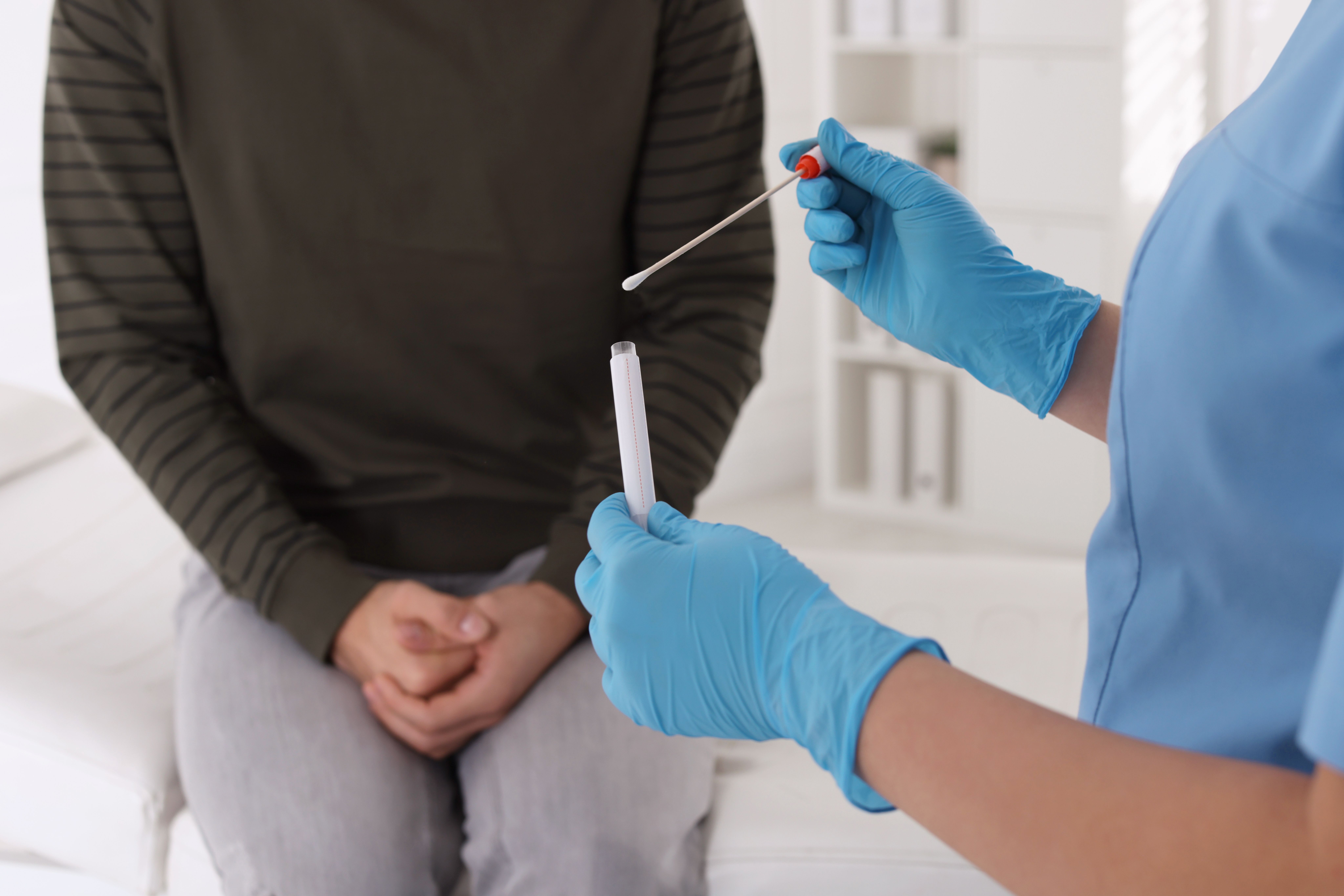- Center on Health Equity & Access
- Clinical
- Health Care Cost
- Health Care Delivery
- Insurance
- Policy
- Technology
- Value-Based Care
Bacterial STIs in Men Living With HIV Associated With Drug Use in Sexual Context
Drug use, participation in exchange sex, and depressive symptoms were all found to be associated with bacterial sexually transmitted infections (STIs) in sexual minority men living with HIV.
Sexually minority men (SMM) living with HIV (LWH) in the US who contracted bacterial sexually transmitted infections (BSTIs) were more likely to participate in sexual activity with multiple partners, participate in exchange sex, have drug use in a sexual context (chemsex), or have depressive symptoms, according to a study published in AIDS and Behavior.1
BSTIs are a rising concern in SMM LWH in the United States, with chlamydia (CT), Neisseria gonorrhea (NG), and syphilis among the most common diagnoses.2 SMM and LWH have a higher rate of diagnosis of these BSTIs when compared with heterosexual men and those living without HIV, respectively. Those who have BSTIs in SMM LWH are more likely to have lesser adherence to antiretroviral therapy (ART), unsuppressed viral load, and increased risk of condomless sex, which makes identifying those with the most BSTIs important. This study aimed to report findings on the accumulation of BSTIs and also report on the behavioral characteristics of SMM LWH with non-durable viral suppression or low adherence to ART.
Chemsex and depressive symptoms were associated with BSTIs in sexual minority men living with HIV | Image credit: New Africa - stock.adobe.com

A longitudinal intervention held from 2015 to 2016 was used for data. The intervention tracked the sexual health outcomes of SMM LWH that were included in the study. Online targeted recruitment was done to recruit eligible men. Participants were eligible if they were cisgender males, were aged 18 years and older, were living in the US, self-reported LWH, reported condomless sex with another man in the previous 6 months, had lesser adherence to ART, and could speak English. Suboptimal adherence to ART was defined as being less than 90% adherent in the previous 30 days.
All participants performed a baseline assessment as well as 4 quarterly follow-up assessments within 12 months. The participants completed online assessments to measure all of these factors. Demographic and socioeconomic characteristics were self-reported using the questionnaire and included age, race and ethnicity, education, and the region of the US that they were from. Exchange sex, sexual history, substance use, and depressive and anxiety symptoms were all inquired about in the survey.
There were 1073 SMM LWH who were included in the study, of which 725 completed surveys at all 4 follow-ups. The participants primarily identified as White (62%), Black (21%), or Hispanic (17%). At least 1 BSTI was more likely to be reported in men younger than 40 years when compared with older men.
Chemsex occurred at least once in 43% of the participants and was associated with an increased chance of reporting a BTSI (RR, 1.72; 95% CI, 1.42-2.08). Exchange sex was also associated with at least 1 BSTI (RR, 1.74; 95% CI, 1.45-2.09) and was reported in 29% of participants. Reporting a BSTI was also linked with depressive symptoms (RR, 1.20; 95% CI, 0.99-1.44).
At least 1 BSTI was reported by 30% of the participants, and the mean number of BSTIs was 0.49 due to multiple BSTIs reported by the same participants; 44% reported a second BSTI. The most common BSTI was syphilis, but recurrent infections were also prevalent, with CT infections accounting for 38% to 45% of the recurrent infections compared with 28% to 45% for NG and 33% to 45% for syphilis.
There were some limitations to this study. There was no clinical sexual data used for this study, and it relied solely on self-report, which could affect the number of known BSTIs. Serology for syphilis was not collected to assess new and formally treated infections. Treatment completion was not recorded. SMM LWH who do not use the social media apps and websites used to recruit the participants of this study may not be generalizable to this study. Recall and reporting bias is possible due to the self-reporting nature of data collection. There was some missing data due to participants being able to skip questions if they did not know the answer, which could affect the findings.
The researchers concluded that chemsex, depressive symptoms, and exchange sex all had a link to recurrent BSTIs in SMM LWH in the United States. This finding emphasizes the need to provide interventions to target this specific subgroup to ultimately reduce the burden of BSTIs in this demographic and overall.
References
- Rozenberg FD, Preciado E, Silver M, Hirshfield S. Longitudinal modeling of bacterial sexually transmitted infections among sexual minority men living with HIV. AIDS Behav. Published online September 6, 2024. doi:10.1007/s10461-024-04480-2
- National overview of STIs, 2022. Centers for Disease Control and Prevention. Updated January 30, 2024. Accessed September 10, 2024. https://www.cdc.gov/std/statistics/2022/overview.htm
